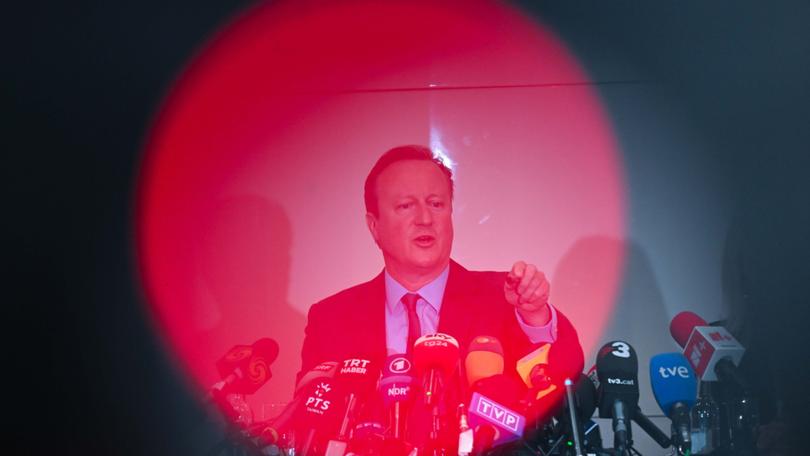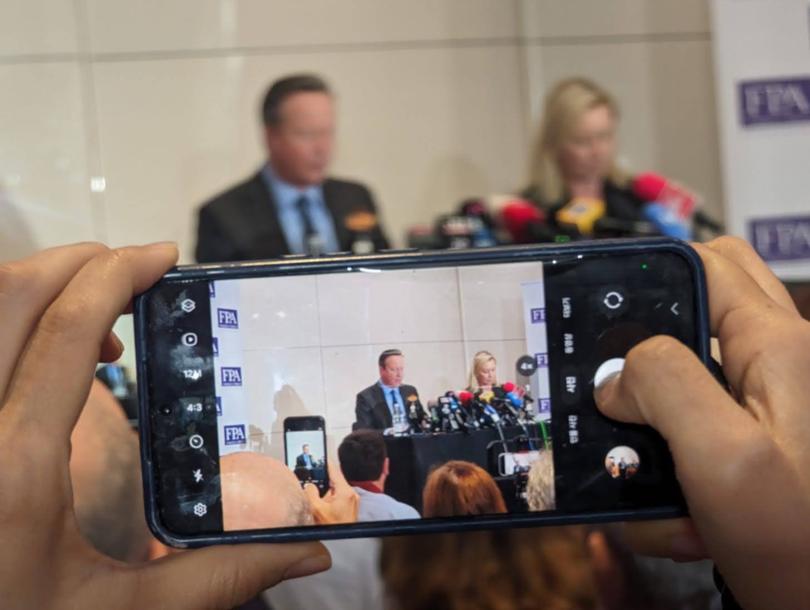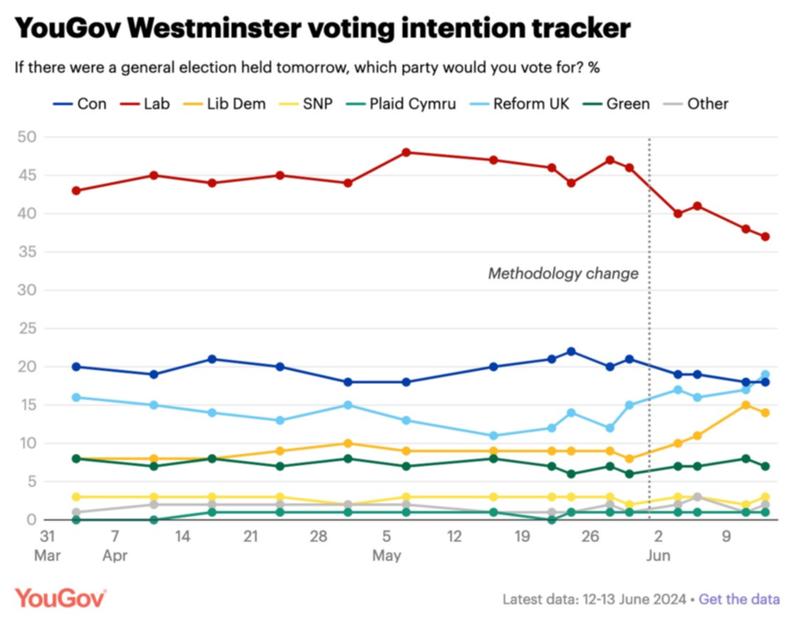David Cameron: Former PM’s hopes to rewrite legacy at risk as Reform threat rises and Tories trouble looms
Former Prime Minister David Cameron is trying to rewrite the final chapter of his legacy, but the upcoming UK election may leave it in tatters, just like his Conservative party.

As David Cameron strode into the Royal Overseas League Club on Thursday morning, his aides had to clear a path amongst the crowd of foreign reporters who had abandoned their seats and lined up in front of the stage, waiting for him to enter so they could take his picture.
By re-entering the fray as foreign secretary, Cameron might have hoped to rewrite the final chapter of his legacy. But this election could leave it even worse off.
The former-prime-minister-turned-foreign-secretary showed just how much he’s still got it, not just in his ability to pull a crowd, (it was a record attendance of foreign media at a Foreign Press Association event in recent history) but also in the way he deftly fielded an hour’s worth of questions from reporters, most of whom where European and eager to question him about his Brexit legacy.
Sign up to The Nightly's newsletters.
Get the first look at the digital newspaper, curated daily stories and breaking headlines delivered to your inbox.
By continuing you agree to our Terms and Privacy Policy.
UK Foreign Secretary David Cameron addresses the Foreign Press Association at ROSL in London on Thursday, June 13, 2024.
These included whether the Tories will even survive the July 4 election.
‘All outcomes are possible including a Conservative victory and that’s what I’m working for,’ a bullish Cameron told the gathering of foreign reporters.
Asked about the threat of Reform, led by former UKIP leader Nigel Farage, Cameron acknowledged the problem, as he argued that voting Reform in the UK’s first-past-the-post system would ultimately benefit Labour, who he claimed would be weaker on immigration and national security.
‘If you want those things you need to vote Conservative,’ he said.
‘If you vote Reform you may end up with a Labour government that will give you none of those things.
‘And that’s the challenge - to get across that argument.’
Hours after he spoke a first poll suggested the Tories were losing that too.
YouGov showed Reform nudging one point above the Conservatives at 19 points in its survey of 2211 adults taken on Wednesday and Thursday.

“That day has finally arrived,” YouGov’s accompanying statement said, referring to the long-held speculation that the Tories could be overtaken.
Even the Conservatives have conceded they could be consigned to third place, albeit as an election tactic.
On Tuesday, the Tories released an ad on social media warning of a super-majority victory for Labour.
A Conservative Party ad published on Facebook claiming the Labour Party would win a supermajority and Reform no seats in the upcoming UK election.

The graphic, published on Facebook – a social media platform more popular with older voters — claimed a possible Labour victory of 490 seats leaving the Conservatives in third place with just 57 seats and behind the Liberal Democrats.
It was clearly a message to would-be Reform voters, the same type Sunak was appealing to when he proposed reintroducing a form of national service.
Farage was jubilant.
‘We are the challengers to Labour,’ the Reform leader said in a video posted to social media straight after the poll, conducted for The Times, was published.
‘This is the inflection point, the only wasted vote now is a Conservative vote.’
This is worst-case scenario territory for Sunak.
With the outcome of the next election widely believed to fall in Labour’s favour, part of the rationale for calling the election now and not in the autumn was to try and catch Reform off-guard.
For a short while it appeared to work when Farage said he was staying in the United States where he has been supporting Donald Trump’s likely re-election as US President. But then he changed his mind and announced he was standing in the constituency of Clacton and would lead Reform.
Farage has unsuccessfully stood for parliament seven times before but it was the surge of his former UKIP party in 2014 that drove Cameron to call the 2016 referendum.
An overconfident Cameron believed he would win for Remain, cauterise the rise of the populists and settle the European question for another generation.
Leave’s victory did initially crush UKIP. But the enduring damage has been to the Conservative party, which Cameron immediately quit as leader, handing Number 10 to three unqualified successors in Theresa May, Boris Johnson and Rishi Sunak.
Riven over their divisions on how to quit Brussels, the Tories have never recovered, nor been able to rally around a common set of ideas ever since and have descended into an ever-growing number of micro-factions.
Now the question is not whether they will be booted out of office but whether they will survive to be the official opposition or be overtaken by either Reform or the Liberal Democrats, who have also shown signs of catching up to the Conservatives in the polls.
With three weeks to go until polling day, it is too early to call and it is also worth noting that Reform’s one-point lead is within the margin of error.
But the highly symbolic development shows that for Cameron, come election day, his final defence for calling the referendum — to crush the populist rise — may be left in tatters, just like his Conservative party.

